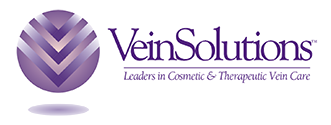Summer in Central Texas means high heat and heavy humidity, and if you have varicose…
Are varicose veins hereditary?
Have you ever noticed if your mother, or her mother before had varicose veins? And then you started to wonder yourself if you might develop them, too?
Varicose veins occur in approximately 35% of all adults, mostly women, but men can get them too.
Evidence shows that there could be a hereditary connection linked to these bulging, discolored formations under the skin that often cause painful symptoms like aching, swelling, and fatigue in the lower legs where they typically occur.
Here’s what you should know about varicose veins and heredity:
Varicose veins are caused by tiny malfunctions in the vein wall leading blood to flow backwards away from the heart and pool into the characteristic knotty and darkly-colored spiny structures.
They are considered a type of venous disorder or insufficiency.
Research does suggest there is a predisposition to chronic venous disorders via gene abnormalities found in vein wall structures that could run in families. If someone close to you suffers from varicose veins, it is a good idea to keep track of any change in appearance that develops in your legs, painful symptoms that start, or other problems with your circulation that arise.
In addition to heredity, other common risk factors for varicose veins include pregnancy and hormones, obesity, a job/hobby that requires prolonged standing, a serious injury or trauma to the legs, or a history of blood clots.
On the bright side, our board-certified vascular surgeons and vein specialists at VeinSolutions say there are many ways to help prevent varicose veins and effectively treat them if you do end up affected by them.
How can you help prevent varicose veins?
- Maintain an ideal weight so that there is less pressure directly put on your legs
- Exercise often to improve circulation
- Avoid frequent and prolonged bouts of sitting or standing
- Elevate your legs when resting (with your feet positioned above the heart) to encourage blood flow back up towards the torso
- Wear compression stockings to prohibit swelling in the legs
If you do develop varicose veins, VeinSolutions offers many forms of varicose vein removal and treatment to ease symptoms and improve the overall look and feel of your legs.
Sclerotherapy and endovenous ablation are both non-surgical procedures that are conveniently performed in our clinics with minimal pain or discomfort and typically speedy recovery times. More stubborn varicose veins can be treated successfully with minimally-invasive surgery.
Please contact us here for a consultation with one of our specialists to help you feel, and look your best, or call 512.452.VEIN (8346) in Austin, or 512.501.4287 for Georgetown.



